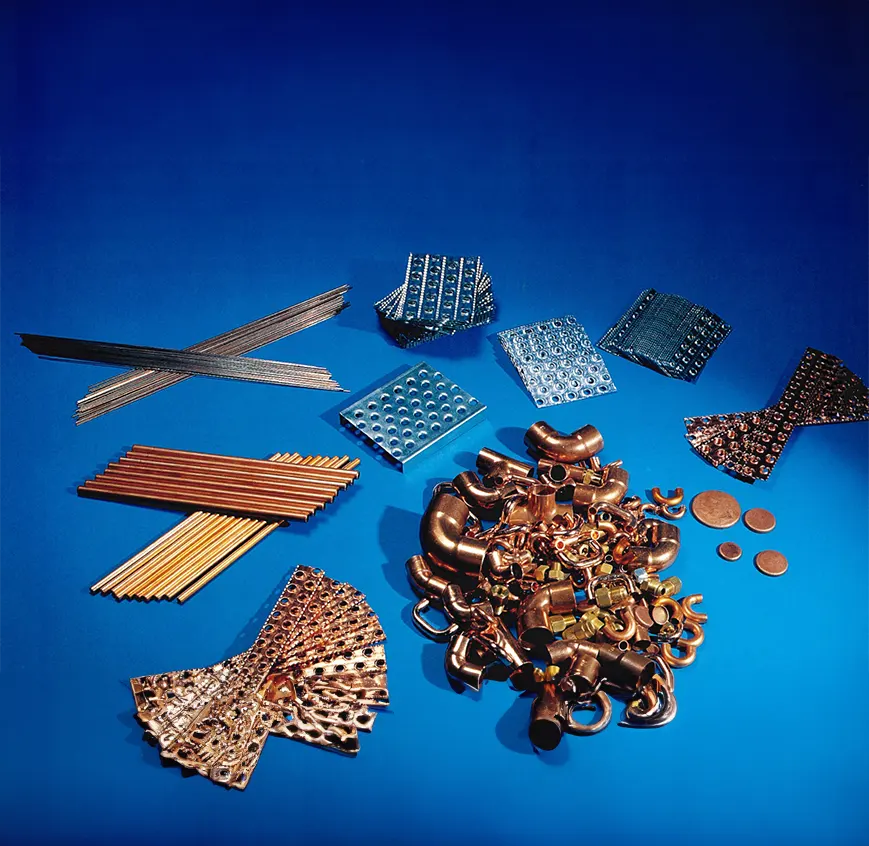Raw materials & parts are imported from U.S.A., Japan and Europe. Selected to meet and exceed manufacturers original material design specification.

Please Don’t Be Misguided
Вy suppliers marketing coils with thicker tubes and fins material, as a mark of quality and corrosion resistance. Thermal Conductivity of tubes and fins will be dramatically effected, resulting in poor system performance, deterioration and eventually system break-down. Based on our on-site research and investigations, we have found that 95% of aluminium fins corrosion were mainly due to: excessive coil cleaning by acid based chemicals during servicing, neglected or never serviced coils and most importantly using the wrong coil type for the wrong application. Copper tube corrosion was mainly due to high acidity levels commonly found in areas such as petroleum, petrochemical, and aluminium processing plants.
We have conducted this study to determine if the material thickness was one of the main cause for corrosion and we have found that thickness has no eflect on corrosion.
The solution is not increasing the material thickness as a deterrent against corrosion, but simply investigating the causes, and recommending the suitable coil for the right application, performance, service life, in a competitive and economical package.

Assembly
Each unit passes through rigorous examination during the assembly and production stages to guarantee that our customers are always supplied with superb quality products.
Brazing
Coils brazed using silver-baring brazing alloy (brazing rods) for maximum bonding.
Final Leak Testing and Inspection
Our standard leak testing is done with a minimum of 400ps/ (competitors test below 250s) for at least 2 hours (not a standard procedure for others).
After leak testing, each unit is labelled with a unique serial number for traceability.
Expansion
Coils are mechanically expanded to fins, for uniform tube to fins bonding for maximum heat transfer.
